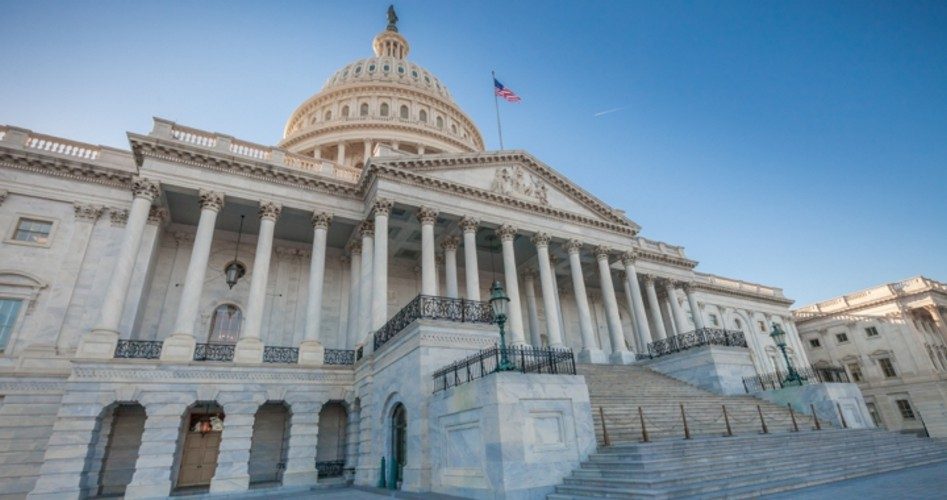
ObamaCare repeal, left for dead a week ago, has just as suddenly been revived as the Senate voted Tuesday to open debate on a bill that could indeed wipe most, if not all, of the 2010 law off the books.
It was a moment of high drama in the usually staid chamber. According to the New York Times, just before the vote, a band of protesters in the Senate gallery chanted, “Kill the bill, don’t kill us!” and “Shame, shame, shame!” All 48 Democrats and independents, of course, voted no. Two Republican senators, Lisa Murkowski of Alaska and Susan Collins of Maine, held fast to their pledges to vote against moving forward with the bill. Other GOP members — Kentucky’s Rand Paul, Nevada’s Dean Heller, and West Virginia’s Shelley Moore Capito — reversed themselves and voted for it. Arizona Senator John McCain, returning from surgery for brain cancer, voted to proceed with debate while stating he would not vote for the bill’s passage, after which Wisconsin Senator Ron Johnson, who had been arguing with Senate Majority Leader Mitch McConnell, finally cast a yes vote, bringing the tally to 50-50. Lastly, Vice President Mike Pence, in his role as president of the Senate, cast the deciding vote in favor of proceeding with debate.
According to CNBC:
After the vote … McConnell said “this is just the beginning” and added that he did not want to “spike the football.” The Kentucky Republican said he hopes to have a measure that can pass the Senate and advance to the House or a conference between the House and Senate by the “end of the week.”
“We’re pleased to have been able to take the first step in that direction,” he said.
President Donald Trump, who, as the Times put it, had “pushed, cajoled and threatened senators” to vote to begin debate, was pleased that his efforts had paid off. “Now we move forward toward truly great healthcare for the American people,” he said during a joint press conference with the prime minister of Lebanon. “This was a big step.”
Big step though it was, it was just the first among many that must occur for Republicans to fulfill their longstanding pledge to repeal the unconstitutional Affordable Care Act (ACA).
The Senate will first debate and vote on a bill that would repeal nearly all of the ACA. That bill, previously passed by Congress in 2015, was vetoed by then-President Barack Obama.
If, as expected, the repeal bill fails, the Senate will then take up the replacement bill that was pulled last week after several Republicans announced they would vote against it. This time around, the bill will likely include “an amendment from Sen. Ted Cruz (R-Texas) that allows the sale of catastrophic plans, and an amendment by Sen. Rob Portman (R-Ohio) that would add $100 billion in additional spending on Medicaid,” reported NBC News.
Most observers believe those amendments still won’t get the bill passed, especially since they will force it to go through the normal legislative process rather than budget reconciliation, making it possible for Democrats to block it. In fact, according to NBC News, the promise that full repeal would be taken up first, followed (if necessary) by replacement that was expected to fail, induced Paul, who opposes the weak replacement bill, to vote to open debate.
The next option would be a so-called “skinny” repeal, which would erase the ACA’s individual and employer mandates and medical-device tax but leave most of the rest of the law intact. It would not include any replacement provisions.
If the Senate manages to pass any of these bills, the bill would then go to conference with the House of Representatives, where the final version of the bill would be drafted, after which both chambers would have to vote on it. If both passed it, it would then fall to Trump either to sign or to veto the legislation.
In other words, ObamaCare repeal, whether full or partial, still has a long way to go before becoming a reality. But given where things stood just seven days ago, opponents of the monstrous law at least have reason to be cautiously optimistic.
Photo of Capitol Building: Thinkstock



